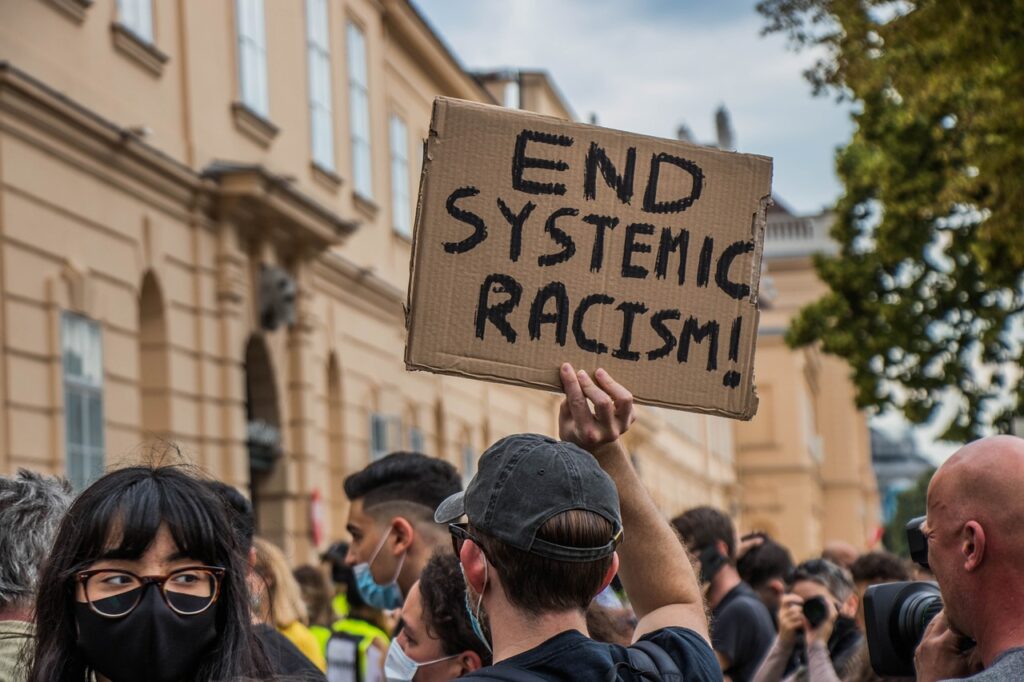
On December 1, 2021, the Thinking Through the Museum Research Network hosted a workshop facilitated by Amal Alhaag and Syrus Marcus Ware on “Uprooting White Supremacy in the Institution.” This workshop functioned as a place for project members to initiate an ongoing, project-wide discussion regarding equity, decolonization, and anti-oppression within the international and cross-sectoral Thinking Through the Museum project. The following SnapThoughts were offered by Museum Queeries’s Research Associate, Assistant, and Coordinator.
“The TTTM workshop on anti-racism and decolonization offered an important space to initiate dialogue between its members and the critical questions and concerns that will pervade the seven years of the project. As a white settler immersed in Eurocentric academic spaces, the critique of scarcity stuck for me. That is, a speaker noted how most white and colonial institutions maintain a constant state of scarcity that prevents or burdens so-called progress or change. What would it mean for this comprehensive project to disrupt the whiteness or colonial nature of scarcity? This is especially relevant to museum spaces that are widely understand as underfunded or under-supported. In what way is scarcity integrated into the culture of these institutions and into what the workshop described (and critiqued) as “diversity management”? How can TTTM conduct anti-racist and decolonial work that intervenes into this culture? The workshop’s identification of what some may view as a seemingly simple concept within our capitalist state-of-being strikes me as a critical question for the long-term vision of the project’s extensive goals. ” – Nicole Ritchie
“One of the first activities we did for the workshop was to speak about an object we had that marked whiteness within each of the institutions we were in. I was placed in an all BIPOC group when it was time to break into smaller groups and share our objects. Everyone in my group had a different object to share, and more importantly, had a unique story that came with being a racialized person within a white institution. One of the things that struck me the most while listening to my group was Karina Justo’s experience of “[becoming] the object in a room when there’s a lack of something”. In other words, becoming objectified as a racialized person when a space has a lack of or has erased BIPOC contributions. I interpreted this as the tokenization of racialized peoples within white spaces, where they are often turned into trophies of diversity and equity that allow these spaces to check-off their box of supposed inclusivity. I think Karina’s quote speaks to how whiteness tends to uncritically consume the work, labour, and presence of racialized peoples only to end up reproducing whiteness.” – Mika Castro
“When we separated into groups to discuss the whiteness in our individual institutions, my group found that whiteness often made itself visible through people’s interactions with physical spaces: the objects that we see, whether they are part of the architecture or the exhibits, and how we move into and through institutional spaces, which are often policed by membership or actual law enforcement. However, workshop facilitators Amal Alhaag and Syrus Marcus Ware encouraged us not only to critique institutions and identify the problems but also to envision a future version of these spaces where such problems do not exist as a goal to work toward. When discussing complex issues, it can be easy to get bogged down in the harms that are caused and to feel overwhelmed by the difficulties at hand, so I appreciated the focus in this workshop of thinking past current problems to future solutions. I think that such a productive approach promotes a forward momentum to push us out of the stasis of the status quo.” – Sabrina Mark
